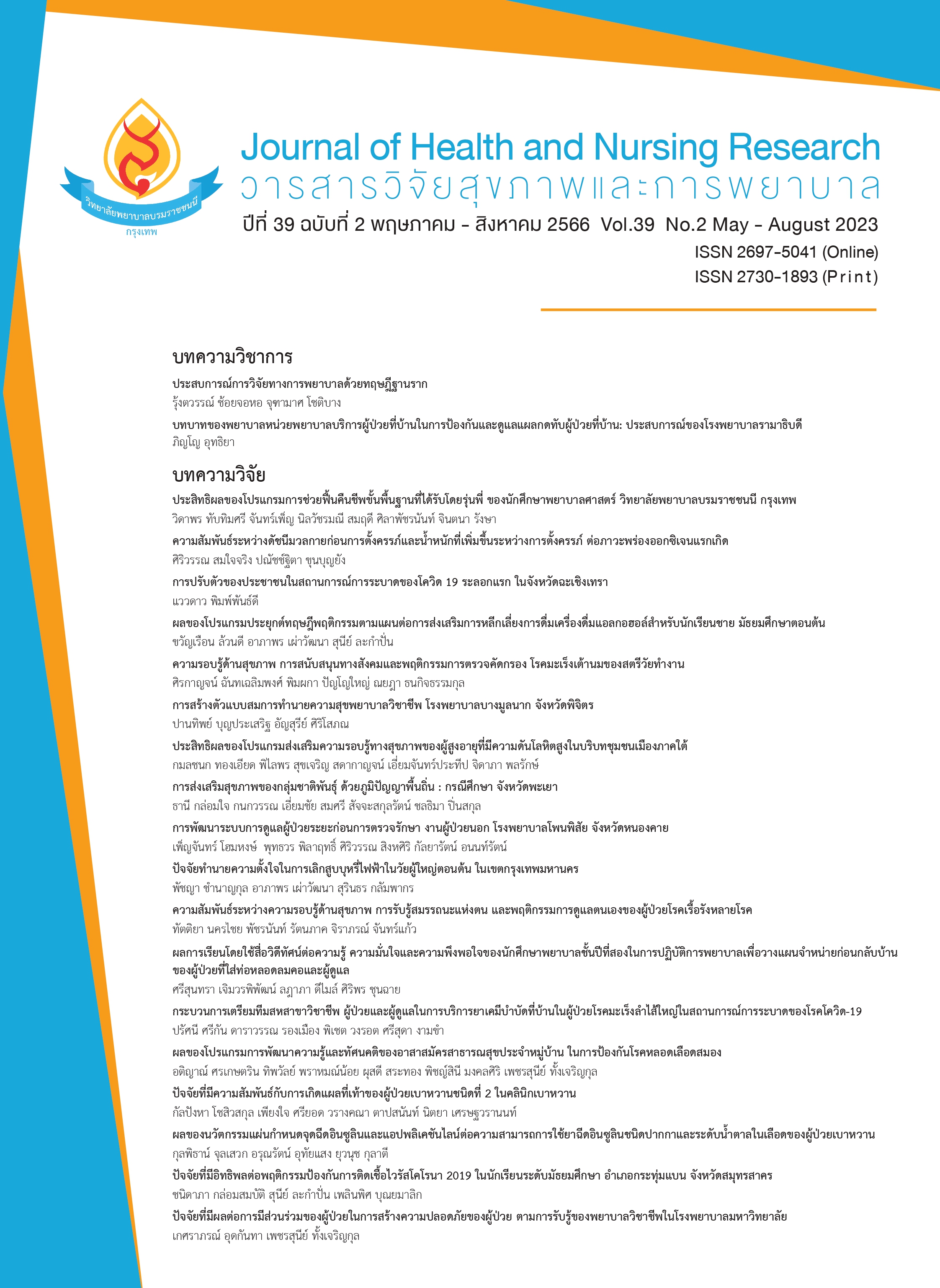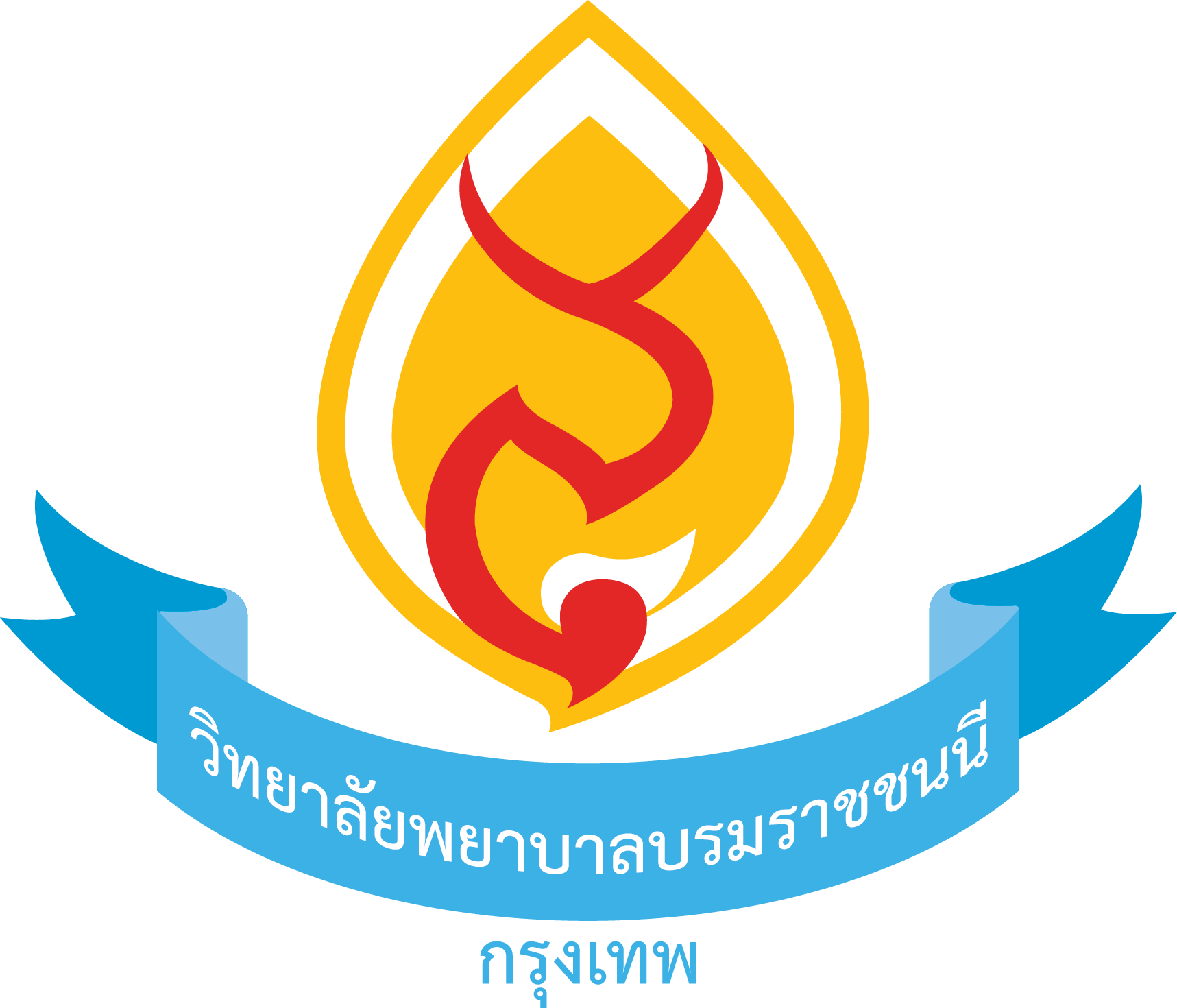People’s Resilience during the First Wave of COVID-19 Pandemic in Chachoengsao Province
Keywords:
resilience, COVID-19, policy recommendationsAbstract
Introduction: The first wave of the COVID-19 pandemic between January and May 2020 has affected people in multiple dimensions. People's resilience and ability to rapidly recover, including promoting and supporting people's resilience through the involvement of relevant agencies, are therefore important.
Research objectives: To examine the resilience of people and communities, and propose policy recommendations for people's resilience during the COVID-19 pandemic.
Research methodology: This descriptive study consisted of two groups of samples: 1) The first group included 422 household representatives aged 20 years and above obtained by a multi-stage random sampling technique, with data collected using interviews. Data were analyzed using descriptive statistics. 2) The second group consisted of12 stakeholders involved in policymaking or implementing measures to prevention and control the pandemic. A purposive sampling method was used to recruit the sample. In-depth interview technique was used to collect data. Data were analyzed using content analysis.
Results: People’s resilience during the first wave of the COVID-19 pandemic covered five aspects including: economy, health, social, information technology, and education. Policy recommendations for people's resilience included promoting employments, fostering knowledge based on the principles of self-sufficiency economy, promoting financial planning, encouraging the return of the workforce to their hometowns, and promoting knowledge related to their own healthcare. Additionally, there were recommendations for mental health counseling services, developing inclusive health service systems, improving communication and public relations, developing community health volunteer networks, enhancing social networks, promoting participation from all sectors, encouraging the use of technology, developing information platforms in the health sector, enhancing parental skills for children's learning, improving internet infrastructure, and supporting educational equipment.
Implications: People can use the guidelines emerged from the study and apply them to tackle the new waves of pandemics, emerging diseases, or future crises that may occur. The government and relevant organizations can utilize the policy recommendations to develop various policies and measures that enable people to adapt effectively.
Downloads
References
Ministry of Public Health. Endemic approach to COVID-19 [Internet]. 2022 [Cited 2022 Jun 23]. Available from: https://www.pyomoph.go.th/backoffice/files/42090.pdf. (in Thai).
Plipat T. Lessons from Thailand’s response to the COVID-19 pandemic. Thai Journal of Public Health 2020;50(3):268–77.
Kunchusawad P, Nuntapanich C, editors. Planning and evaluation committee meeting and monthly meeting no. 1/2021; 2021 Jan 28. Chachoengsao: 2021. Provincial Public Health Office. (in Thai).
Kullavanijaya C. Development of public health emergency management strategies for disease control and prevention of Coronavirus 2019, Chachoengsao province. Journal of Preventive Medicine Association of Thailand 2021;11(2):218-38. (in Thai).
Chinsiraprapa A. The impact of COVID-19 on the tourism economy in the eastern region. Journal of Industrial Business Administration 2021;3(2):1-4. (in Thai).
United Nations Thailand. Assessment of the total economic impact and society from the spread of COVID-19 in Thailand. Bangkok: United Nations Thailand; 2020. (in Thai).
Division of Mental Health Promotion and Development, Department of Mental Health. The result of overall mental health problem surveillance data analysis among Thai people [Internet]. 2021 [Cited 2022 Jan 9]. Available from: https://www.mhllibrary.com. (in Thai).
American Psychological Association. The road to resilience [Internet]. 2014 [Cited 2020 Nov 10]. Available from: http://www.apa.org/helpcenter/road-resilience.aspx.
Department of Provincial Administration. Thai population 2020 [internet]. 2020 [cited 2020 Oct 15]. Available from: https://stat.bora.dopa.go.th/new_stat/webPage/statByYear.php. (in Thai).
Krejcie RV, Morgan DW. Determining sample size for research activities. Educational and Psychological Measurement 1970;30:607-10.
Kruamek S, Kulprasutidilok A, Ngamsakoo R. The people’s adaptation towards the new normal lifestyle during the Covid-19 pandemic in Nonthaburi province. Phranakhon Rajabhat Research Journal (Humanities and Social Sciences) 2021;16(2):87-103. (in Thai).
Manlae W, Prathum B, Kaew-On S, Chamnian K. Effects and adjustment of people during COVID-19 pandemic in Nakhon Si Thammarat. Journal of MCU Nakhondhat 2021;8(11):327-40. (in Thai).
Boonchai K, Maneepong C, Parnyong P, Tejo P, Pintobtang P, leanjamroon V, et al. A study on socio-economic impact assessment and adaptation of rural communities against the COVID 19 epidemic. Bangkok: King Prajadhipok's Institute; 2020. (in Thai).
Rungrut S, Maso S, Kadem Y. The economic and social impacts from the COVID-19 pandemic toward the people in Yala city municipality Yala province. Journal of Social Science and Buddhistic Anthropology 2021;6(2):160-74. (in Thai).
National Statistical Office. The survey on the impact of the COVID-19 epidemic situation [Internet]. 2020 [Cited 2021 Aug 5]. Available from: http://www.nso.go.th/sites/2014/DocLib14/Press_Release/2563/P28-04-63.pdf. (in Thai)
Kittinaraporn J. Media uses and the adaption to the new normal healthcare practices during the Coronavirus (Covid-19) pandemic: A case of Pathum Thani province’s citizens. Journal of Communication Arts Review 2021;25(1):15-34. (in Thai).
Choolert P. The new normal life of parents and guardians: on the day that they have to take on roles "Special Teacher" [Internet]. 2020 [Cited 2022 Jan 25]. Available from: https://tpak.or.th/th/article_print/52. (in Thai).
Downloads
Published
How to Cite
Issue
Section
License
Copyright (c) 2023 Journal of Health and Nursing Research (Journal of Boromarajonani College of Nursing, Bangkok)

This work is licensed under a Creative Commons Attribution-NonCommercial 4.0 International License.
Article published Is the copyright of the Journal of Health and Nursing Research (Boromarajonani College of Nursing, Bangkok) Cannot be republished in other journals


















